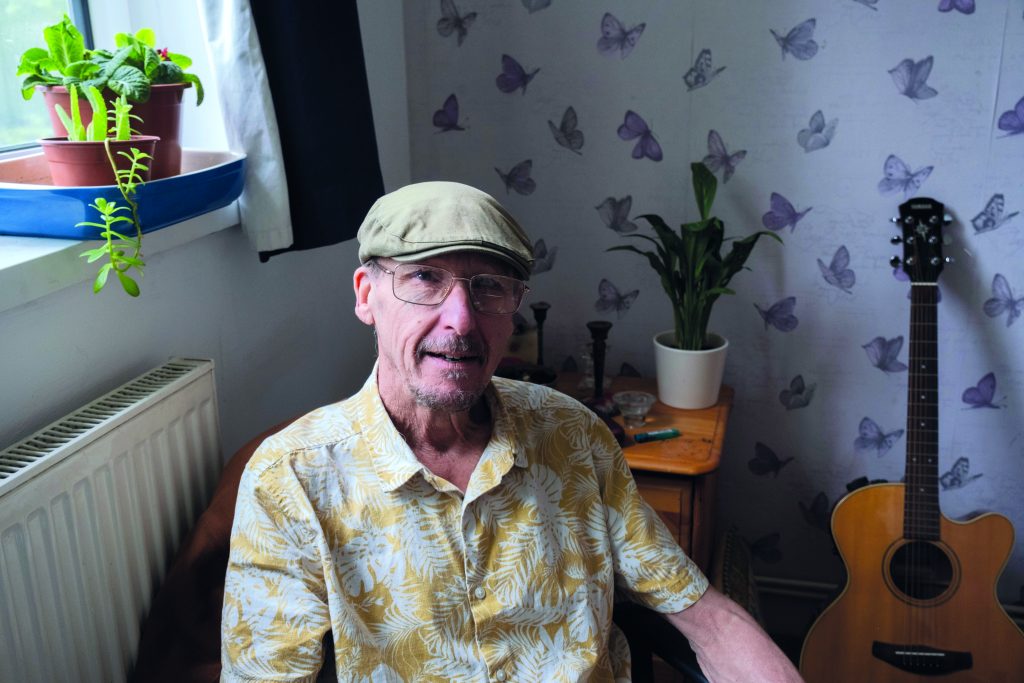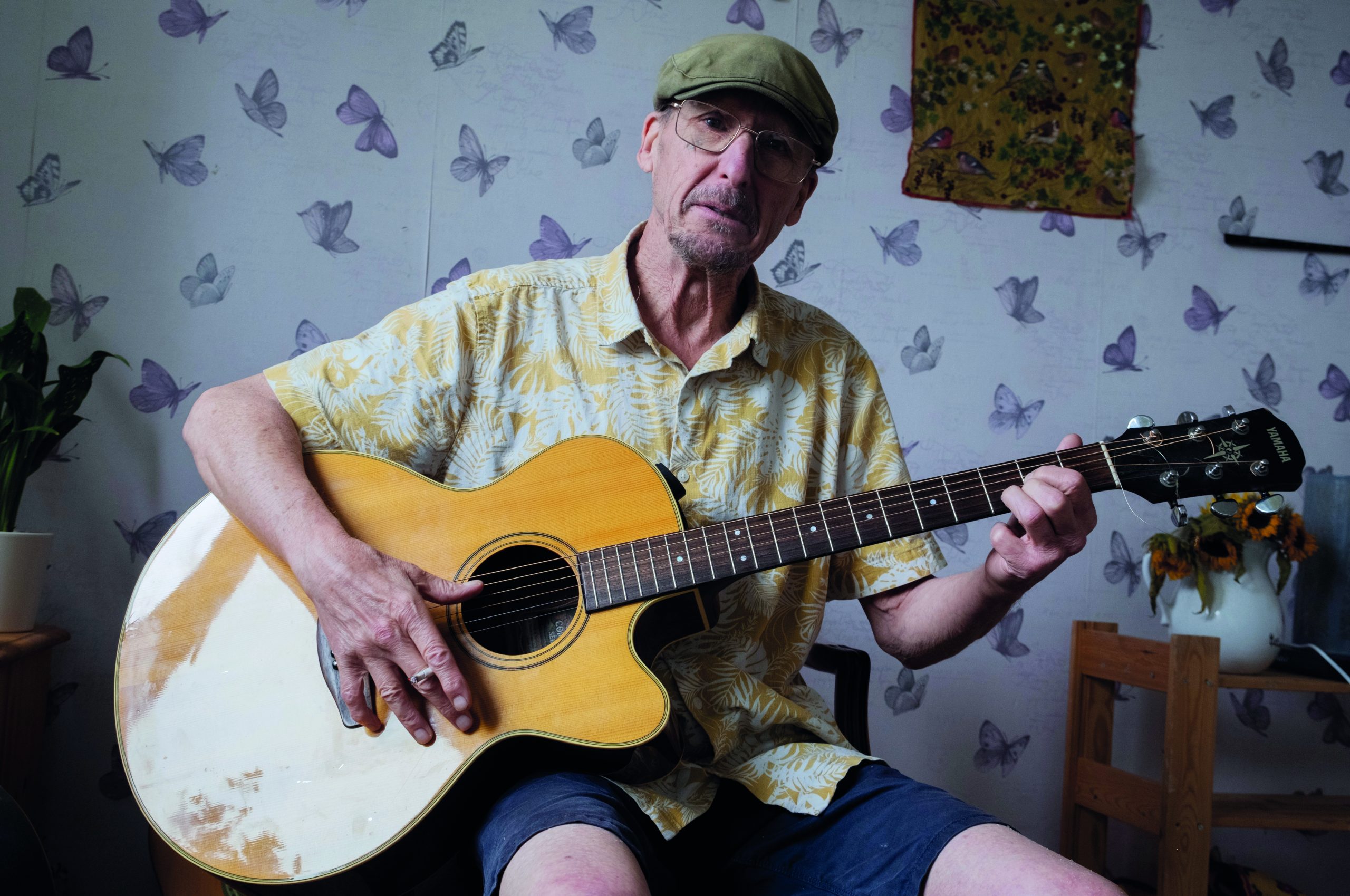Ready to put his old life behind him, Michael knew he needed to make decisions that would help him sustain his tenancy. He explains why he had to stop travelling in order to move forward.
‘Most of the people I’ve known over the years have been travellers, drinkers, drug fiends, and loads of musicians,’ says Michael, ‘that’s your social world.’
For almost half of his life, Michael sang, strummed, and drummed his way across the land, living in squats or sofa surfing and drinking a bottle of wine in less time than it takes to get to the end of your average film.
‘I would never go to a house where someone wasn’t going to drink with me,’ he explains, ‘That just wouldn’t happen. And then I found that I didn’t want to do it. I wasn’t enjoying the heavy- drinking scene or the stuff that goes with it.’
That change began long before he moved into his current Cromwood flat. At the time, Michael (now 67), was living at the home of a hard-drinking functional alcoholic. Part of him was ready to move on, but he stayed put until a concerned friend told him to get down to the homeless charity, Crisis, and ask for help.
He did as he was told and then something incredible happened. Each Christmas, Crisis gives a group of its clients the opportunity to perform with the Royal Philharmonic Orchestra. Michael was one of those musicians. It was like looking at his reflection and seeing a different version of himself, a version that raised his expectations of who he could be.

He believes that projects that give homeless people a peek into another world, a world in which they are seen as more than just a list of problems, are worth their weight in gold. ‘You could save the state loads of money over the years,’ he suggests. ‘If someone gets themselves together they’re not going to go in and out of hospital and prison quite so often. That would be money well spent.’
Cromwood became part of that story when Crisis invited Michael to view three properties. The first two studio flats (offered by a housing provider that shall remain nameless) reflected the way that some parts of society see homeless people.
‘They were very, very rough. A nightmare,’ he recalls. ‘Much better than the street but I wasn’t living on the street. In one of them, the window was falling apart and the shower unit was wretched. They shouted at me for checking the windows and told me that if I didn’t sign up there and then I’d lose the place and it would affect my chance of getting housing.’ He turned them both down.
The third was a property in Greenwich managed by Cromwood. ‘The difference was just ludicrous. I viewed it and said, where’s the pen? Pretty much everything about it is fabulous.’
The unfurnished flat came with a grant for a washing machine, cooker, microwave, TV, and some furniture. Unable to choose between superlatives, he gives me three: ‘The place is fantastic, superb, brilliant.’
When he accepted the flat, he recalled conversations with a friend who helps homeless people sustain their tenancies. His friend told him that some people use their new home as a drug den or as a place to get ‘cuckooed’ with their mates. They smash the place up or spend the rent money on drink and drugs.
‘I said, I’m not doing that. I’m not going to move in unless I get the rent paid direct to Cromwood. This is the first time I’ve had a secure gaff all to myself. As far as I know, I’m a good tenant.’
He’s kept his drinking to a minimum, takes walks around the nearby common, and is looking forward to giving something back. He was always more than the sum of his drinking and drug taking. He’s done care work, volunteered on music projects with disabled people, and helped out in Crisis shops. He’d like to volunteer with Crisis again and help other homeless people build on their strengths and believe in a fuller version of themselves.
His old musical passions are alive and well: ‘I wouldn’t mind forming a band,’ he says. For this lifelong strummer and drummer, that would be fantastic, superb, and brilliant.
